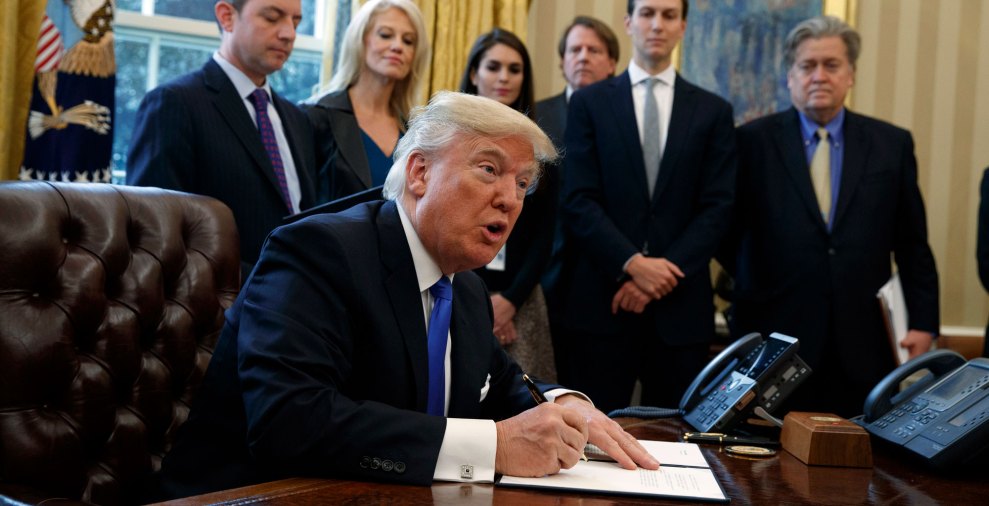David Bosco has a long essay on John Bolton in the Bulletin of the Atomic Scientists that’s well worth a read. As we all know, Bolton sneaked through Congress and got himself installed as UN Ambassador by the president. In all likelihood, he’ll do pretty minimal damage to the institution; the ambassador position just doesn’t have enough power for him to wreak serious havoc. But the debate over Boltonism—namely, his cramped view that international institutions are useless for keeping order in the world, and may even hurt the United States—will no doubt continue to rage on for years to come. Bosco, I think, gets at the sensible case against Boltonism:
Treaties and formal organizations, such as the Biological Weapons Convention and the Nuclear Non-Proliferation Treaty, are helpful precisely because they can create political and moral costs to departing from their mandates–as the United States knows all too well from the diplomatic damage it incurred in waging war against Iraq without U.N. approval.
Bolton is no doubt correct that such strictures are meaningless to outlaw nations. But regimes like North Korea, for all their danger, are anomalous. Most governments respond in some way, however imperfectly and inconsistently, to the pressure of international law and institutions. By disparaging formal treaties and exalting the PSI, Bolton may have damaged tools that are effective with most countries in an effort to craft policy for the exceptional few. Hard cases, as lawyers say, make bad law.
Can’t argue with that. It’s silly to pretend that international institutions such as the UN or treaties alone will somehow rein in regimes that want to go against prevailing global norms. Kim Jong Il will develop nukes no matter what the Nuclear Non-Proliferation Treaty says. The United States went to war in Kosovo and Iraq without UN approval, and no treaty or institution could have possibly stopped it. Hard power matters. But that doesn’t mean the international community is meaningless. The NPT might not stop North Korea, but it might keep countries such as, say, Brazil from going nuclear. Meanwhile, in the case of Iraq, the costs to the United States for deviating from international norms proved very real, perhaps high enough to make the country think twice before overstepping the wishes of the UN again. The same goes for many other countries that, by and large, wish to reap the benefits that come with playing by the rules: namely, they tend to play by the rules.
A similar case can be made for the International Criminal Court: yes, some very naïve Europeans believe that the ICC’s indictments of the genocidaires in Khartoum will somehow have any effect on the slaughter in Darfur. It won’t, they’re wrong, and sometimes a piece of paper is just a piece of paper. But the ICC still remains a decent tool for adjudicating certain conflicts and pooling international resources together for prosecuting war criminals, rather than have the world continue to set up ad hoc tribunals as it did in Rwanda. (And no, contrary to Bolton’s fears, the ICC would not be used against the United States.)
Meanwhile, Bolton—along with, one presumes, the president that backed him—ignores the capability of international institutions, again, like the UN, to foster cooperation and ties between countries that almost always benefit from cooperation and closer ties, but sometimes fail to cooperate for whatever reason. Many multilateral treaties aren’t laws in the sense that, say, laws against murder are laws here in the United States. They’re laws in the way that “everyone will drive on the right side of the road” are laws—extremely useful for coordinating behavior.
In a sense, Bolton knows all this. He oversaw, after all, the signing of 90 treaties during his tenure at the State Department—a strange bit of behavior for someone who supposedly doesn’t believe in international institutions or treaties. The real problem seems to be, as Bosco points out, Bolton’s nationalist paranoia that somehow the UN and other international institutions are all “out to get” the United States, that soon the black helicopters will all swoop in and take over the American hinterlands. Donald Rumsfeld’s 2005 National Defense Strategy evinced a very similar paranoia when it argued, “Our strength as a nation state will continue to be challenged by those who employ a strategy of the weak using international fora….” This may be true in small instances, of course, but it’s not the sort of possibility you want to base a foreign policy on. The sooner the United States moves away from the paranoid foreign policy championed by Bolton, Rumsfeld, and Bush, the better.















